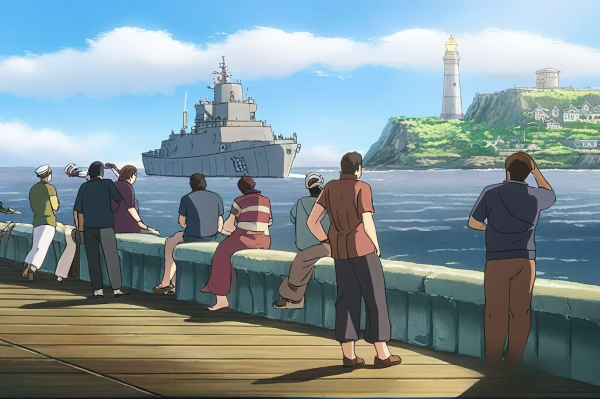Iran’s Plan to Strike Back Against the U.S.
Iran’s Military Preparations Following U.S. Attacks
Loading...

The United States minimizes the significance of the deployment, occurring amidst escalating tensions stemming from Russia's complete invasion of Ukraine.
The arrival of Russia's Admiral Gorshkov frigate and the nuclear-powered submarine Kazan, accompanied by a tugboat and a fuel ship, in Cuba for a five-day visit is interpreted as a display of strength by Moscow amidst escalating tension due to its invasion of Ukraine.
Onlookers, fishermen, and police gathered along Havana's Malecon seafront boulevard to welcome the fleet as it entered the city's harbor on Wednesday. Cuba, a longstanding ally of Russia, greeted the vessels' arrival with a 21-gun salute, while Russian diplomats waved small Russian flags and took selfies against the backdrop of the harbor's historic fortresses.
Prior to arriving in Cuba, the four Russian vessels conducted "high-precision missile weapons" training in the Atlantic Ocean. The submarine and frigate are equipped with Zircon hypersonic missiles, Kalibr cruise missiles, and Onyx anti-ship missiles, according to the Russian Ministry of Defence.
This significant deployment of the Russian navy near the United States follows Washington's decision, along with some of Ukraine's other Western allies, to allow Kyiv to use their weapons against targets inside Russia amid a renewed Russian assault on northeastern Kharkiv and shortages of battle troops and ammunition.
Havana is only 160 kilometers (100 miles) from Key West in Florida, where the United States maintains a naval air station. Benjamin Gedan, director of the Latin America program at the Wilson Center think tank in Washington, DC, described the warships' presence as a reminder to Washington of the consequences of interfering in neighboring territories and as a demonstration of Moscow's support for its allies in the region, including Cuba and Venezuela.
Cuba stated last week that the visit was routine for naval vessels from countries friendly to Havana and that the fleet was not carrying nuclear weapons. The United States, which has been monitoring the vessels, downplayed the deployment. White House National Security Adviser Jake Sullivan stated that such naval exercises were routine and that there was no evidence of Russia transferring any missiles to Cuba, although the US would remain vigilant.
The port call coincided with a meeting in Moscow between Cuba's Foreign Minister Bruno Rodriguez and his Russian counterpart Sergey Lavrov. During the meeting, Rodriguez expressed Cuba's rejection of NATO expansion toward Russia's border and called for a diplomatic solution to the conflict in Europe.
While Cuba was an important ally of the Soviet Union during the Cold War, the relationship between Cuba and Russia has deepened since the collapse of the Soviet Union. For Cuba, this alliance is primarily driven by economic necessity due to shortages of essential goods, exacerbated by the US embargo. Russia has been assisting Cuba with oil deliveries and has promised support in various economic sectors.
The Russian ships are expected to remain in Havana until June 17, with US officials anticipating their presence in the region throughout the summer and potential stops in Venezuela.
Iran’s Military Preparations Following U.S. Attacks
Troops remain in five strategic locations, raising fears of renewed tensions and long-term occupation.
Opposition forces have taken control of the capital after a significant offensive. Here is how it unravelled.
